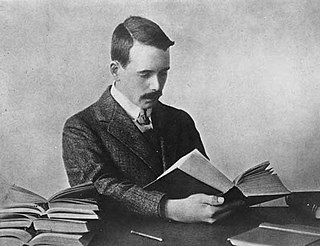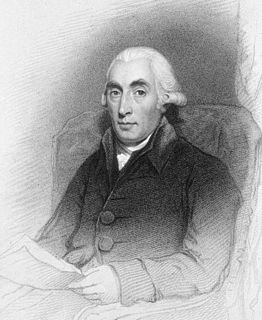A Quote by Hermann von Helmholtz
The older view of the nature of heat was that it is a substance, very fine and imponderable indeed, but indestructible, and unchangeable in quantity, which is an essential fundamental property of all matter.
Related Quotes
Nothing is more human than for man to desire naturally things impossible to his nature. It is, indeed, the property of a nature which is not closed up in matter like the nature of physical things, but which is intellectual or infinitized by the spirit. It is the property of a metaphysical nature. Such desires reach for the infinite, because the intellect thirsts for being and being is infinite.
The physiological combustion theory takes as its starting point the fundamental principle that the amount of heat that arises from the combustion of a given substance is an invariable quantity-i.e., one independent of the circumstances accompanying the combustion-from which it is more specifically concluded that the chemical effect of the combustible materials undergoes no quantitative change even as a result of the vital process, or that the living organism, with all its mysteries and marvels, is not capable of generating heat out of nothing.
It is indeed a striking proof of the essential soundness of the tradition that with which all these thousands of copies, tracing their ancestry back to so many different parts of the earth and to conditions of such diverse kinds, the variations of text are so entirely questions of detail, not of essential substance.
Metaphysics is the study of the most general nature and basic structure of reality, and therefore the concepts of metaphysics, concepts like time, space, identity, resemblance, substance, property, fact, event, composition, possibility, etc., are the most fundamental concepts. Thus metaphysics is the most fundamental theoretical discipline.
I look upon enthusiasm, in all other points but that of religion, to be a very necessary turn of mind; as indeed it is a vein which nature seems to have marked with more or less strength, in the tempers of most men. No matter what the object is, whether business, pleasures or the fine arts: whoever pursues them to any purpose must do so con amore.
The hypothesis of molecular vortices is defined to be that which assumes - that each atom of matter consists of a nucleus or central point enveloped by an elastic atmosphere, which is retained in its position by attractive forces, and that the elasticity due to heat arises from the centrifugal force of those atmospheres revolving or oscillating about their nuclei or central points.According to this hypothesis, quantity of heat is the vis viva of the molecular revolutions or oscillations.
Heat may be considered, either in respect of its quantity, or of its intensity. Thus two lbs. of water, equally heated, must contain double the quantity that one of them does, though the thermometer applied to them separately, or together, stands at precisely the same point, because it requires double the time to heat two lbs. as it does to heat one.
In every combustion there is disengagement of the matter of fire or of light. A body can burn only in pure air [oxygen]. There is no destruction or decomposition of pure air and the increase in weight of the body burnt is exactly equal to the weight of air destroyed or decomposed. The body burnt changes into an acid by addition of the substance that increases its weight. Pure air is a compound of the matter of fire or of light with a base. In combustion the burning body removes the base, which it attracts more strongly than does the matter of heat, which appears as flame, heat and light.
From the point of view of logic, my report on 'Exclusion principle and quantum mechanics' has no conclusion. I believe that it will only be possible to write the conclusion if a theory will be established which will determine the value of the fine structure constant and will thus explain the atomistic structure of electricity, which is such an essential quality of all atomic sources of electric fields actually occurring in nature.

































